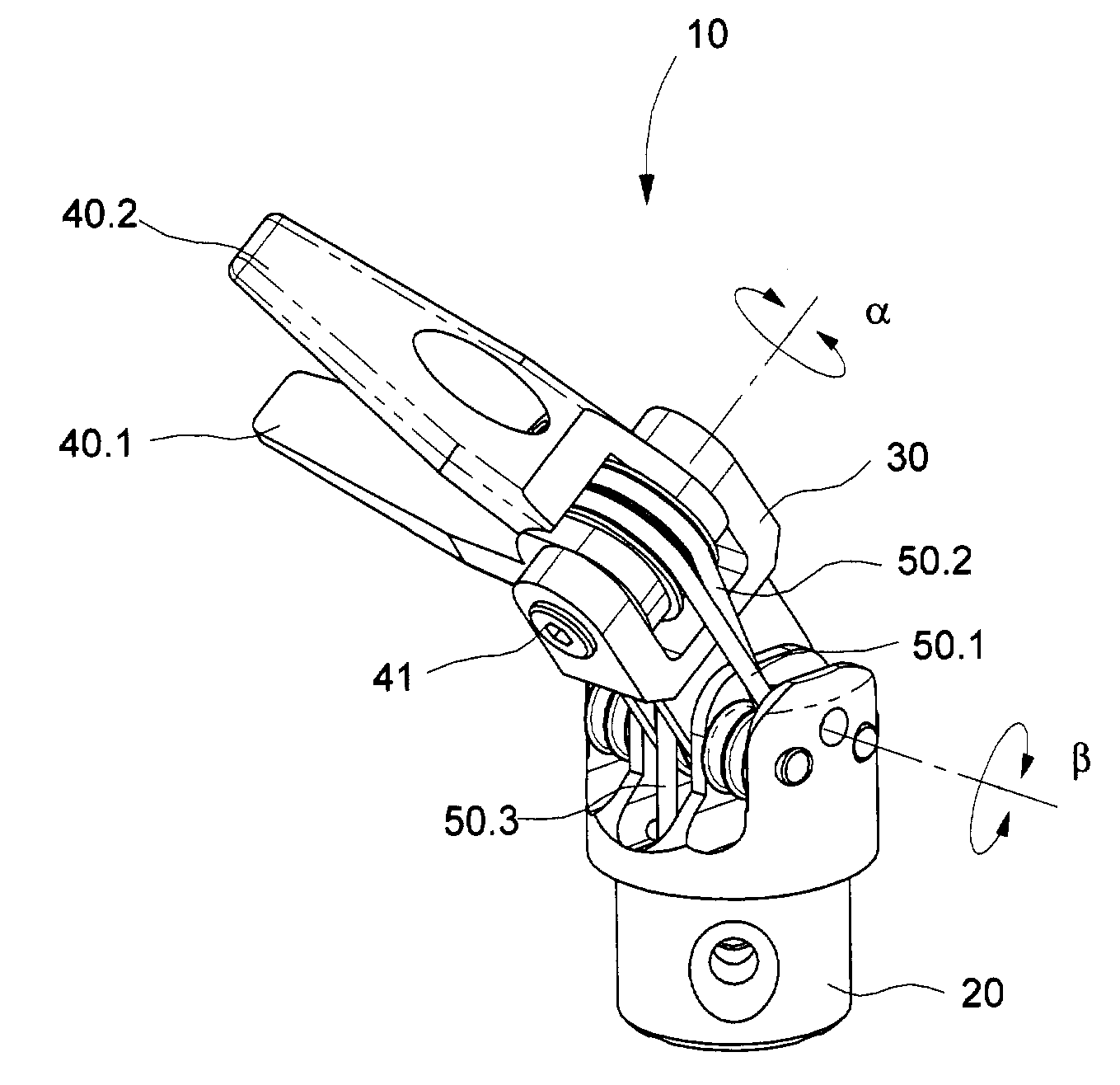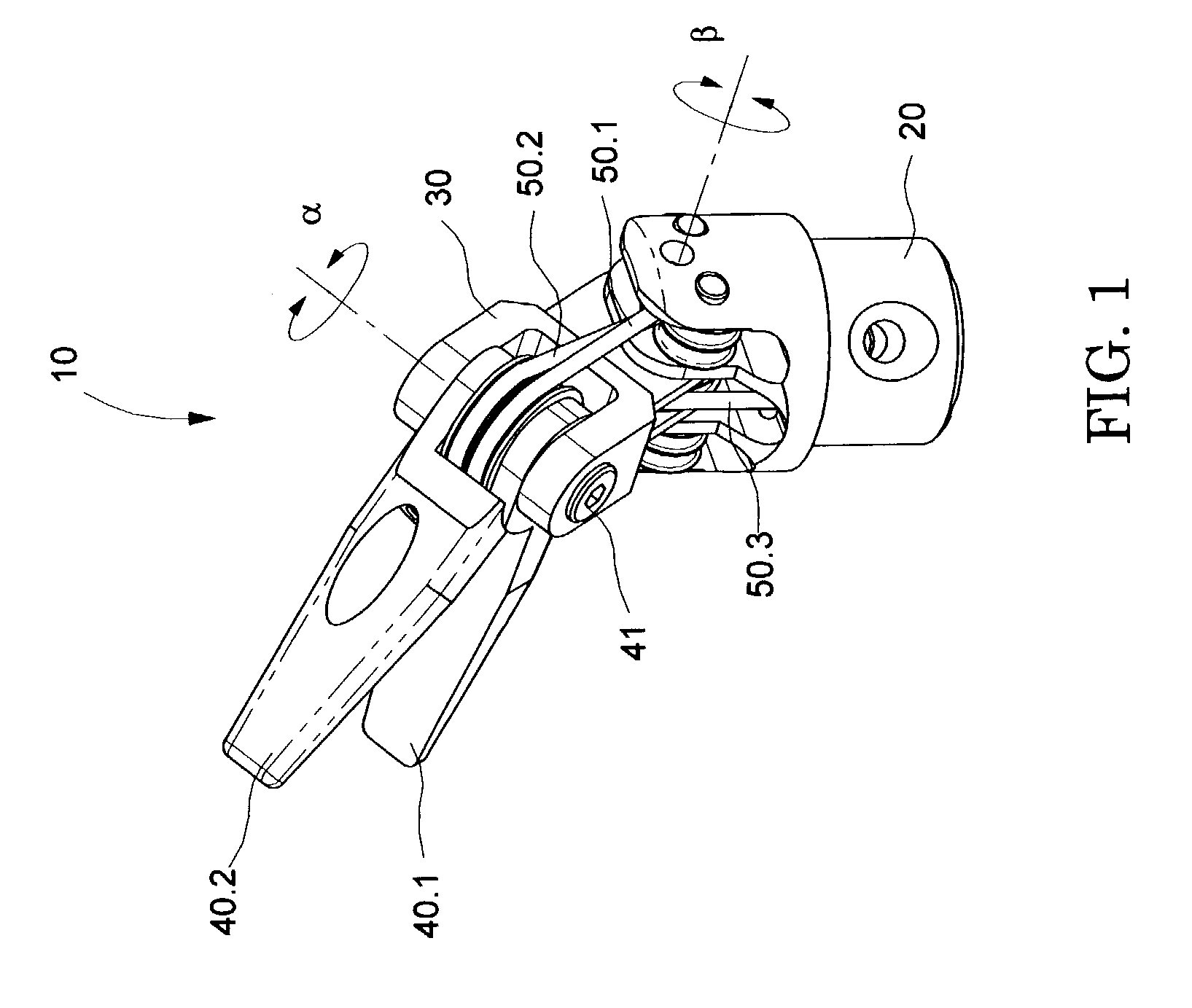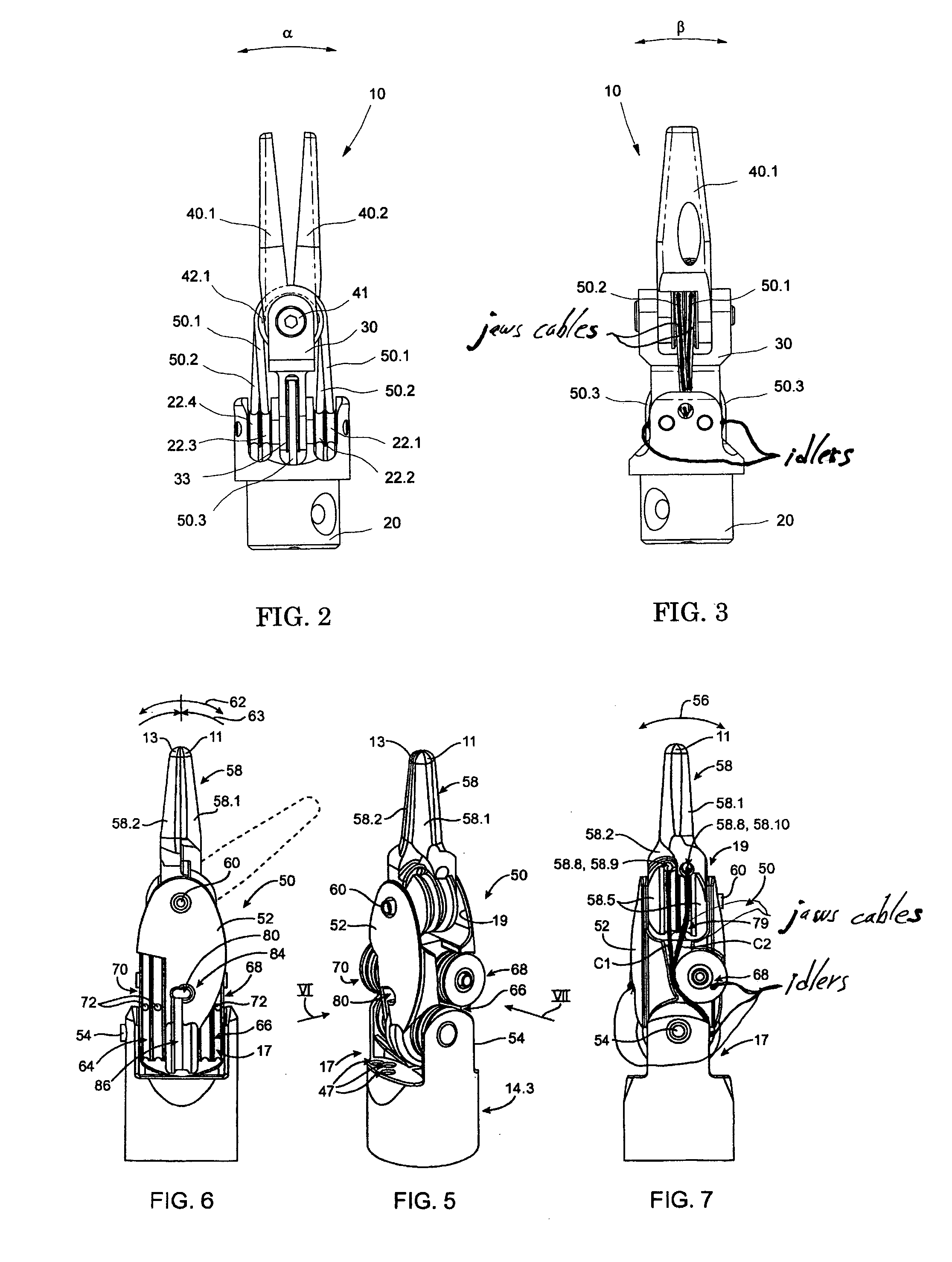Wrist with decoupled motion transmission
a technology of decoupling motion and transmission cable, which is applied in the direction of mechanical control devices, instruments, applications, etc., can solve the problems of adversely affecting the sensitivity or “feel” of users, and achieve the effects of reducing inertia of moving elements, reducing stretching on the transmission cable, and increasing the performance of devices
- Summary
- Abstract
- Description
- Claims
- Application Information
AI Technical Summary
Benefits of technology
Problems solved by technology
Method used
Image
Examples
Embodiment Construction
[0032]FIGS. 1 through 4 illustrate a wrist and tool 10. The end-effector consists of two jaws 40.1 and 40.2, each jaw is rigidly coupled to their respective drive pulleys 42.1 and 42.2. Both jaws rotate around a link axis α on a common shoulder screw 41 that is mounted to the link 30. An orthogonal wrist rotation β occurs when the jaws base rotates with its pulley 33 around pin 31.
[0033]FIG. 4 shows an exploded view of the wrist mechanism 10. The jaw 40.1 has a ring 40.1a machined around its rotation axis. Each drive pulley 42.1 and 42.2 mounts on its jaw ring with its respective cable attached. Each jaw 40.1 and 40.2, pulley 42.1 and 42.2, and the cable 50.1 and 50.2 (not shown in FIG. 4) is rigidly coupled together with its setscrew 43.
[0034]Each jaw 40.1 and 40.2 can rotate independently around the shoulder screw 41, α axis. When the two jaws rotate on the same direction, one wrist articulation motion is accomplished. And when the jaws rotate on opposite direction, the jaws will ...
PUM
 Login to View More
Login to View More Abstract
Description
Claims
Application Information
 Login to View More
Login to View More - R&D
- Intellectual Property
- Life Sciences
- Materials
- Tech Scout
- Unparalleled Data Quality
- Higher Quality Content
- 60% Fewer Hallucinations
Browse by: Latest US Patents, China's latest patents, Technical Efficacy Thesaurus, Application Domain, Technology Topic, Popular Technical Reports.
© 2025 PatSnap. All rights reserved.Legal|Privacy policy|Modern Slavery Act Transparency Statement|Sitemap|About US| Contact US: help@patsnap.com



